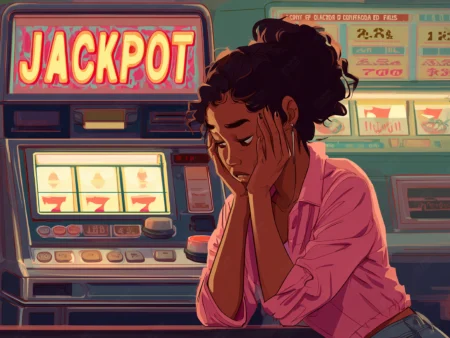You’ve watched the wheel hit black four times in a row. Chips in hand, you feel it, red’s next. It has to be… right?
That instinct, the urge to “balance the streak”, is why color betting grabs so many roulette players. It’s fast, visual, and feels logical. Red or black. Win or lose. No charts, no calculations. Just your gut against the wheel.
But here’s the truth: the red or black roulette strategy isn’t really a strategy at all. It’s a reflex. And unless you understand how probability, psychology, and house edge actually work, it’s a reflex that slowly bleeds your bankroll.
So, does betting red or black actually work? Or is it just one of those classic gambling myths, easy to believe, hard to profit from? We’ll break it down: what the numbers say, why our brains fight randomness, and how color bets can fit into smarter, sharper roulette strategies.
Table of contents
- Red or Black in Roulette, What’s the Strategy, Really?
- Betting Patterns & Beliefs: Do They Matter?
- What the Math Actually Tells Us
- Common Misconceptions About Red or Black
- So… Should You Bet Red or Black in Roulette?
- Want Better Odds? Start With Smarter Strategies
- FAQ: People Also Ask About Red or Black in Roulette
Red or Black in Roulette, What’s the Strategy, Really?
What Makes Color Bets So Popular?
Let’s be real, for most players, red or black is the gateway bet. No grid. No math. Just color and gut.
That’s the appeal: simplicity. You don’t need to know what a split or street is. You’re not tracking hot numbers. You’re just picking a side and riding the wheel. Clean. Quick. Satisfying.
But beneath the surface, there’s something stickier at play: emotional pattern recognition. Our brains love patterns, even ones that don’t exist. Watch a string of blacks hit and your instincts start whispering, red has to land next. That illusion of control is powerful… and costly.
And then there’s the big trap: the myth of 50/50 odds. Red and black may look balanced, but roulette isn’t a coin flip. There’s one little problem.
The House Edge Behind the Illusion
The green zero, or zeros, if you’re on an American wheel, is where the house quietly wins. It’s not red. It’s not black. But when the ball lands there, your outside bet is toast.
On a European wheel, your actual odds of hitting red or black are about 48.65%. On an American wheel with double zero? That drops to 47.37%. Not huge, but enough to grind you down over time.
Every spin is tilted slightly in the casino’s favor, and red or black doesn’t change that.
And if you’re playing online, there’s another layer, RNGs (Random Number Generators). Instead of a physical wheel, the outcome is determined by a complex algorithm. That’s why it’s crucial to play on platforms with certified fairness and transparent odds.
Betting Patterns & Beliefs: Do They Matter?
Chasing Streaks, The Gambler’s Fallacy in Action
You’re watching a live wheel. Black has hit five times in a row. Your buddy leans over and says, “Red has to land now.”
That’s the classic Gambler’s Fallacy, the belief that past outcomes somehow influence future ones. They don’t. Every spin is independent. The wheel doesn’t care what happened last time. There’s no memory, no momentum, no justice.
Here’s the mental trap: we’re wired to see patterns. A streak feels too streaky, so we assume it’s about to flip. But roulette doesn’t work that way, and that belief can wreck your balance.
Visual analogy: Imagine flipping a coin five times and getting tails each time. Your brain screams, “Heads is due!” But the odds never change, it’s still 50/50.
Now, give that coin a hidden third side, a green zero that quietly steals a little edge each spin. That’s roulette. Red or black might feel like a coin toss, but the math has a bias. And it never tips your way.
Martingale and Color Betting: Dangerous Combo?
If red or black is a trap, pairing it with Martingale is like tossing a match into your bankroll.
Here’s how the Martingale system works:
- You start with a small bet, say, €/$ 5 on red.
- If you lose, you double it: €/$ 10.
- Lose again? Go to €/$ 20. Then €/$ 40. Then €/$ 80…
- You keep doubling until you finally win, and recover all losses with a tiny profit.
On paper? It sounds bulletproof.
In practice? It’s brutal.
Example, 5 losses in a row:
- Spin 1: €/$ 5
- Spin 2: €/$ 10
- Spin 3: €/$ 20
- Spin 4: €/$ 40
- Spin 5: €/$ 80
- Total risked: €/$ 155… to win €/$ 5
If you hit eight, nine, or ten losses in a row, which can happen, you either:
- Hit the table’s max bet and can’t continue
- Run out of cash chasing a single break-even spin
Color betting makes Martingale feel safer than it is. But that combo has nuked more bankrolls than cold bonus rounds and dodgy welcome offers combined.
Curious how Martingale, Fibonacci, or D’Alembert actually stack up?
Check out our guide to roulette betting systems, we break down what works, what doesn’t, and what’s just wishful thinking wrapped in math.
What the Math Actually Tells Us
Red vs Black: By the Numbers
Let’s drop the superstition and run the hard numbers.
On a European roulette wheel (37 pockets: 18 red, 18 black, 1 green zero), your odds look like this:
- 48.65% for red
- 48.65% for black
- 2.70% for green (house edge)
On an American wheel (38 pockets, with double zero), it gets worse:
- 47.37% for red or black
- 5.26% for green
That sliver of green might feel small, but over time it compounds, especially if you’re betting red or black assuming it’s an even 50/50 game.
Let’s visualize the difference:
| Spins | Expected Red Wins (European) | Expected Black Wins (European) | Expected Green (0) Hits |
| 100 | ~49 | ~49 | ~2 |
| 500 | ~243 | ~243 | ~14 |
| 1000 | ~486 | ~486 | ~27 |
The takeaway?
You’re always playing slightly uphill. The house doesn’t need to win every spin, just enough over time. And no matter how many blacks hit in a row, the next spin still carries the same exact odds.
Outside Bets & Smarter Play
Red and black are outside bets, higher hit rate, lower payout (1:1). They’re often called “safer” than inside bets, but don’t confuse safe with smart.
Here’s the better way to approach it:
- Use red/black as one part of a broader roulette strategy.
- Mix in other outside bets (like odd/even or high/low) to spread risk.
- Adjust for game type, live dealer vs RNG behaves differently in flow and session pace.
- Always consider bankroll size and stop-loss limits before applying any pattern or system.
And if you’re playing online, don’t just trust the UI. Make sure you’re choosing certified games from reputable platforms, ones with visible RTP stats and RNG testing.
Want to stop chasing streaks and start playing with structure?
Check out our basic roulette strategy guide, built for real players who want to play smarter, not just longer.
Common Misconceptions About Red or Black
Color bets are like astrology for roulette players, emotional, satisfying, and totally disconnected from actual probability. Let’s break down a few myths that still show up in forums, chats, and way too many losing sessions.
“Red Is Hotter Than Black”
Not last night. Not next week. And definitely not on your next spin.
There’s no such thing as a “hot” color. The wheel isn’t streaking, you’re just watching random variance.
Sure, sometimes red hits five times in a row. Other times, black does. It’s variance, not momentum. And it doesn’t mean anything for the next spin.
“Betting Red on Valentine’s Day Works Better”
Yes, people actually say this.
Just like “black hits more on Friday the 13th” or “green lands more at midnight.”
These are fun if you’re just playing for entertainment, but if you’re putting real money behind a holiday hunch? That’s not a roulette strategy. That’s ritualized gambling.
“Stick to One Color, It Will Even Out”
This one’s sneaky. It sounds logical: bet the same color long enough, and you’ll eventually come out even.
But here’s the reality: the house edge doesn’t care what color you bet.
Every spin has a built-in negative return for the player. Betting red every time doesn’t “balance things out”, it just lets the math quietly grind you down over time.
Why casinos love this mindset:
Because players who stick to color bets feel like they’re in control. They’re confident, comfortable, and consistently giving the house its edge. It’s the perfect trap for casual gamblers chasing comfort over strategy.
So… Should You Bet Red or Black in Roulette?
If you’re betting red or black for fun, to get a feel for the game, keep it simple, or enjoy the suspense of watching your color spin up, go for it. Seriously. There’s nothing wrong with playing for the thrill. That’s part of what makes roulette… roulette.
But if you’re treating red or black as a winning strategy, thinking it’ll help you beat the house long-term, that’s where things fall apart.
Color bets are a tool. Not a system.
They’re easy to track, feel intuitive, and resolve fast. But the odds don’t shift in your favor, not ever. That green zero (or double zero) makes sure of it. And over time, that house edge does exactly what it’s designed to do: win more than it loses.
So what should you do instead?
- Mix up your bets: Use red/black as part of a broader plan. Combine it with other outside bets like odd/even or high/low to spread your risk.
- Set win/loss limits: Walk in with a ceiling, and more importantly, a floor. Don’t let variance turn into tilt.
- Explore systems that manage variance, not ones that chase losses or rely on hot streaks.
And here’s the big one: Don’t confuse consistency with strategy.
Betting red every spin doesn’t give you control, it just gives the house more chances to collect.
Want Better Odds? Start With Smarter Strategies
If you’re done chasing red or black and crossing your fingers for a streak, it’s time to level up.
Roulette isn’t just about luck, it’s about managing variance, reading the game flow (yes, even with RNG), and playing with real intent.
Play at trusted online casinos with fair RNG and fast payouts, only the platforms we trust with our own bets make the cut.
Bet smarter. Play sharper. And leave the color chasing to the crowd.
FAQ: People Also Ask About Red or Black in Roulette
No, both have nearly equal odds. On a European wheel, each color hits about 48.65% of the time. The green zero breaks the 50/50 illusion. Over time, that slight edge tips in favor of the house.
Neither. Red and black are visually distinct, but mathematically identical. There’s no “better” color, just variance. If you want better outcomes, manage your bet size, game choice, and session limits.
It feels like it, right up until it doesn’t. Martingale works by doubling after losses to recover one win. But one bad streak can push you past the table limit or your bankroll’s breaking point. It’s a risky grind with a sharp edge.
Not quite. The green zero (or double zero) changes the math. On European wheels, red or black is closer to 48.65%. On American wheels, it drops to 47.37%. That’s the house edge in action, subtle, but steady.
It depends on your goal. Outside bets like red/black or odd/even have the highest hit rate, making them ideal for slower, steadier sessions. But there’s no bet that beats the house long-term, only ones that stretch your play with less variance.












































